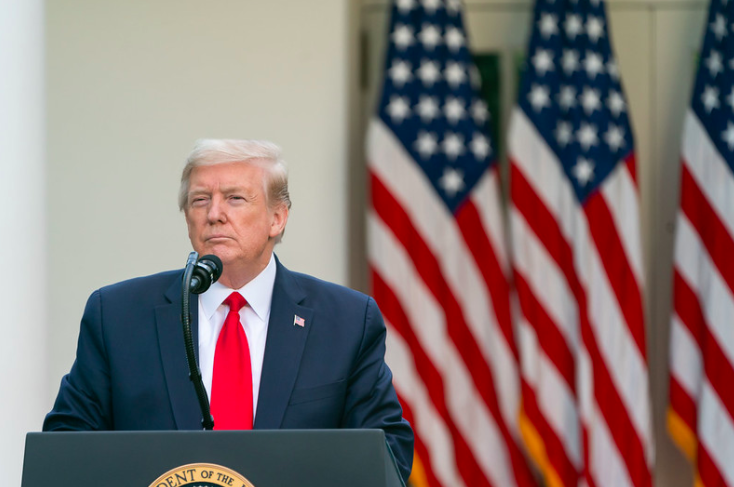A Justin Amash Campaign Could Have a Big Impact on Trump 2020

On July 4, 2019, Rep. Justin Amash (I-MI) announced he was leaving the Republican Party after a series of spats with his GOP colleagues and President Donald Trump. At the time, Amash said the party was in a “death spiral,” which pushed him to change his affiliation to an independent. President Trump responded by calling Amash dumb and disloyal. Less than a year later, Amash announced this week that he has launched an exploratory committee to potentially seek the nomination of the Libertarian Party. Amash will vacate his congressional seat at the end of his term. Whether this will help or hurt Trump’s chances of being re-elected remains to be seen.
Amash’s announcement comes during a period where President Trump has seen historically high favorability numbers for his presidency. PRRI data from March shows that nearly nine in ten (89%) Republicans hold favorable views of Trump, up from 84% in February and higher than at any point in the past year. The same is true of independent voters (up from 40% to 45%) and Democrats (up from 9% to 14%).
When PRRI polled Americans on their thoughts on the 2020 election in September of 2019, support for Trump in 2020 was less enthusiastic than his current favorability numbers might suggest. More than one in four (27%) Republicans and Republican-leaning independents said they would prefer someone other than Trump as the Republican nominee. This group tends to be disproportionately younger, more educated, and less likely to vote overall than the Republicans and Republican-leaners who prefer Trump. Americans ages 30-49 who identify as Republicans or Republican-leaning are more likely to say they prefer another candidate (33%). The number of people who prefer another candidate trends downwards with those aged 50-64 (20%) and those over age 65 (18%). About three in ten (35%) Republicans and Republican-leaners with a college degree (35%) say they prefer another nominee, compared to 24% of those who do not have a college degree.
Historically speaking, third-party alternatives, which Amash could become if he seeks and receives the Libertarian Party nomination, have struggled to win any meaningful support in a general election. In 1992, businessman Ross Perot received over 18% of votes nationally as an independent, but failed to capture any electoral votes. In 2016, Libertarian Party candidate Gary Johnson didn’t break out of single digits in any state. The most support he did get was 9% of the popular vote in New Mexico, where he had previously served as governor. President Trump lost New Mexico’s five electoral votes by less than 66,000 votes, while Johnson and Green Party candidate Jill Stein walked away with over 80,000 combined votes. An Amash entrance to the race could pull votes away from Trump and likely Democratic nominee Joe Biden in Michigan, where Trump narrowly defeated 2016 Democratic Party nominee Hillary Clinton in 2016.
Early reaction to Amash’s exploratory bid has been that of confusion among political pundits. In The Washington Post, Aaron Blake writes that “If [Amash] runs a serious campaign and people come to understand his platform and his tea party roots, perhaps that would be more attractive to conservative voters who might otherwise support Trump.” In a separate piece, Jennifer Rubin pleads with Amash to reconsider his exploratory bid. “Those who fear for the future of the republic are not anxious to make it any harder for Biden to win, and are in no mood to tolerate spoilers. Amash, who previously said he would not run unless he could win, is engaging in what amounts to a vanity campaign in an absolutely critical election. We hope he reconsiders,” she writes.

